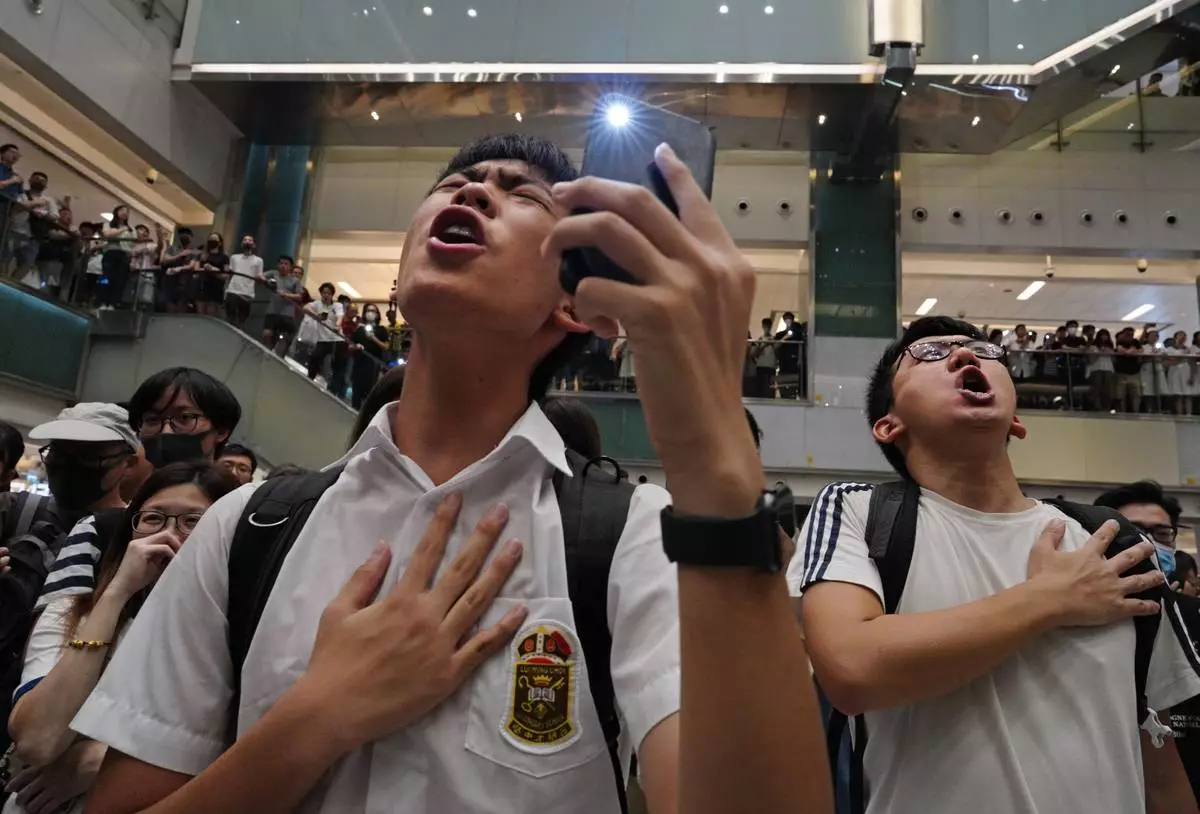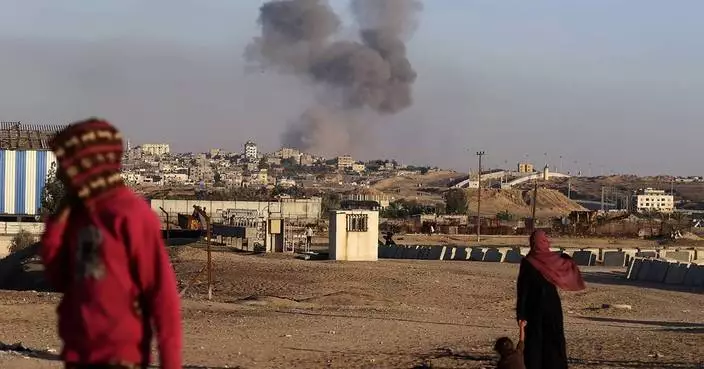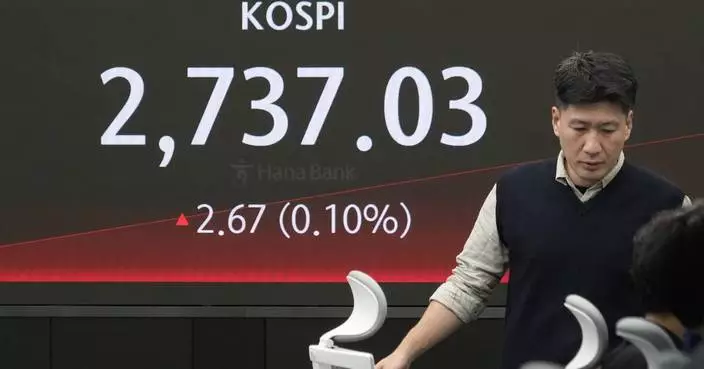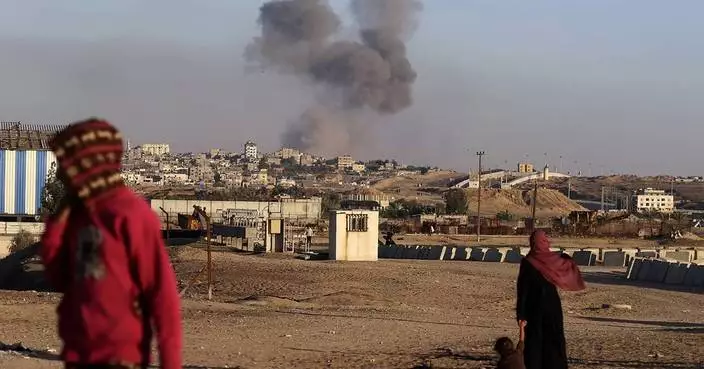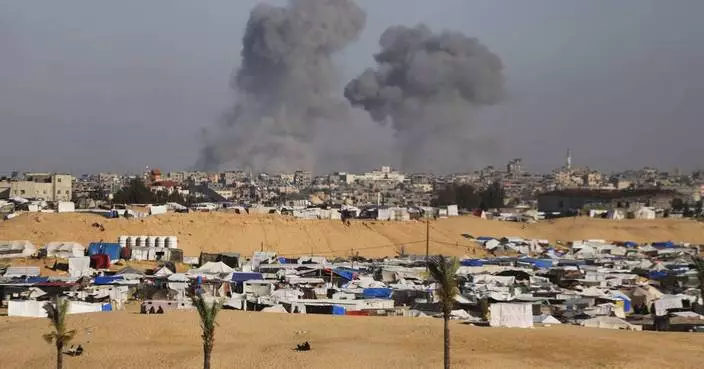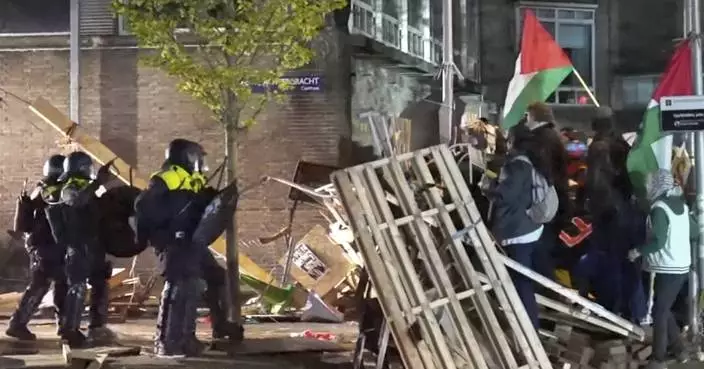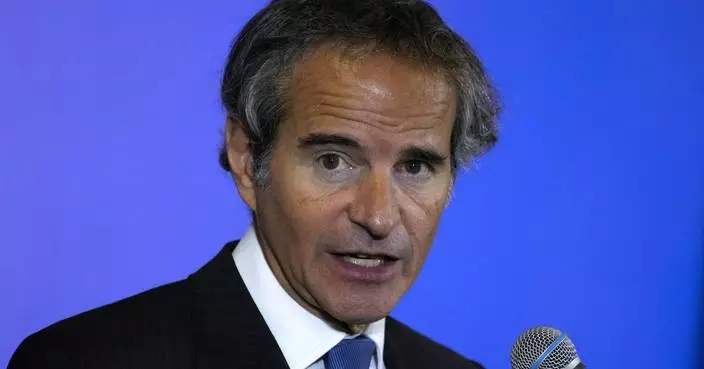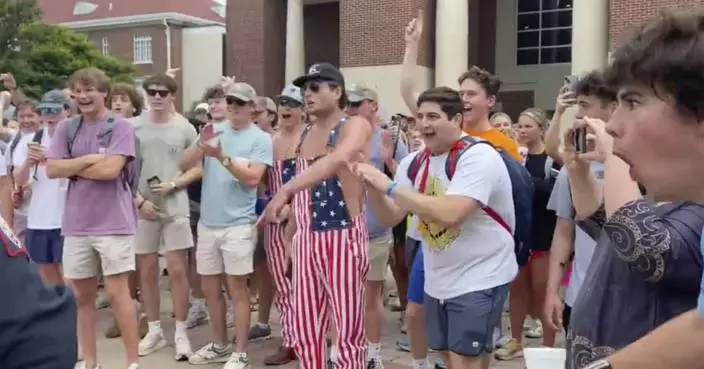Gunfire erupted as Iranian security forces confronted protesters early Sunday amid demonstrations over water scarcity in the country's south, violence that authorities said wounded at least 11 people, mostly police.

Iranian Interior Minister Abdolreza Rahmani Fazli speaks during a press conference in Tehran, Iran, Sunday, July 1, 2018. (AP Photo/Vahid Salemi)
The protests around Khorramshahr, some 650 kilometers (400 miles) southwest of Tehran, come as residents of the predominantly Arab city near the border with Iraq complain of salty, muddy water coming out of their taps amid a yearslong drought.
The unrest there only compounds the wider unease felt across Iran as it faces an economic crisis sparked by President Donald Trump's decision to withdraw America from Tehran's nuclear deal with world powers.
Protests began in Khorramshahr, Abadan and other areas of Iran's oil-rich Khuzestan province on Friday. The demonstrations initially were peaceful, with protesters chanting in both Arabic and Farsi.
But late Saturday and into early Sunday morning, protesters began throwing stones and confronting security forces in Khorramshahr, according to widely shared online videos. State television aired images of rocks and broken glass covering sidewalks, as well as smashed ATMs. Women and children fled as gunfire echoed.
Heavy machine gun fire could be heard in one video showing demonstrators dragging away a man who couldn't walk. Another video appeared to show a man carrying a Kalashnikov assault rifle on the back of a motorcycle near protesters.
State TV reported Sunday afternoon that "peace had returned" to Khorramshahr and an unspecified number of protesters had been arrested. It said some demonstrators carried firearms during the unrest.
It's unclear what sparked the violence. Iranian Interior Minister Abdolreza Rahmani Fazli told journalists Sunday there had been no deaths. A deputy to Fazli later said the violence wounded one civilian and 10 police officers, according to the semi-official ISNA news agency.
"Such protests are directed by the propaganda of opportunists from places and people that are recognized by us as foes," Fazli said. "You observe how they are fueling such incidents in the foreign media and in the cyberspace these days."
Khorramshahr and the wider Khuzestan province have seen pipeline bombings by Arab separatists in the past. Tens of thousands of civilians and soldiers were killed in the province during the 1980s Iran-Iraq war.
Exacerbating that unrest is the drought. The Iran Meteorological Organization estimates 97 percent of the country faced some form of drought. Analysts also blame government mismanagement for diverting water away from some farmers in favor of others.
"Although Iran has a history of drought, over the last decade, Iran has experienced its most prolonged, extensive and severe drought in over 30 years," said a recent report by the Food and Agriculture Organization, a United Nations agency.
Some 230 people were poisoned in Khuzestan province after a 20-hour water outage in Ramhormoz county led to drinking water not being chlorinated, the semi-official Fars news agency reported Sunday. The protests did not appear to be linked to the poisoning.
The protests overnight came after three days of demonstrations last week in Tehran, including protesters confronting police outside parliament and officers firing tear gas at the demonstrators. The rallies led to the temporary closure of the city's Grand Bazaar.
The anger is fueled by the Iranian rial plunging to 90,000 to the dollar — double the government rate of 42,000 — as people watch their savings dwindle and shopkeepers hold onto some goods, uncertain of their true value.
Similar economic protests roiled Iran and spread to some 75 cities and towns at the end of last year, becoming the largest demonstrations in the country since the months-long rallies following the 2009 disputed presidential election. At least 25 people were killed and nearly 5,000 arrested during the protests in late December and early January, which took place largely in Iran's provinces rather than the capital.
The economic crisis has been fueled by Trump's May 8 decision to pull the U.S. out of the 2015 nuclear deal and restore sanctions. International firms that made billion-dollar deals with Iran largely have pulled out of them, while the U.S. now is demanding its allies stop buying Iranian oil.
Iran's first Vice President Eshaq Jahangiri on Sunday mocked the U.S. for "begging the Saudis" to increase oil production to drive down rising global oil prices. Trump claimed Saturday that Saudi Arabia might increase its production by some 2 million barrels of oil a day after a call with King Salman. Saudi Arabia later acknowledged the call, but did not mention Trump's 2-million-barrel claim.
"If any country attempts to take Iran's place in the oil market in this battle, we will consider it a big treachery to the Iranian nation and the world community and they will surely pay for this betrayal someday," Jahangiri said, without elaborating.



